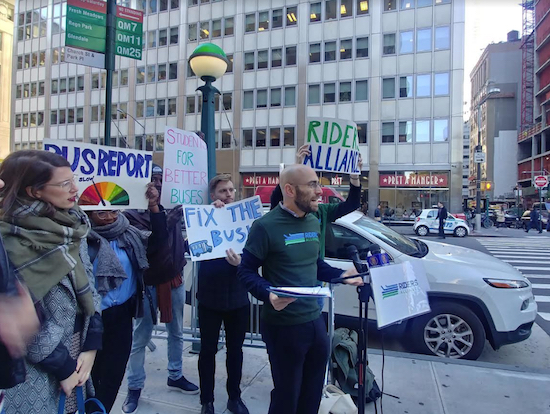Congestion pricing would shave hours off Brooklyn and Queens express bus routes, Riders Alliance report shows

Congestion pricing would shorten express bus travel times on Brooklyn and Queens routes by up to two hours per week, according to a new report released by a grassroots transit advocacy group.
A report by Riders Alliance projects that if Albany lawmakers included congestion pricing — a policy that would bill motorists who choose to drive into parts of Midtown Manhattan — in their upcoming funding plan, commuters could see speed increases of 20 percent in Central Manhattan and 7 percent elsewhere.
Riders of the city’s express buses — many of whom are considered “super commuters” that travel more than 90 minutes each way to work — would, in turn, save anywhere from one to two hours on commuting if congestion pricing is implemented south of 60th Street in Manhattan, the study shows.

Brooklyn Boro
View MoreNew York City’s most populous borough, Brooklyn, is home to nearly 2.6 million residents. If Brooklyn were an independent city it would be the fourth largest city in the United States. While Brooklyn has become the epitome of ‘cool and hip’ in recent years, for those that were born here, raised families here and improved communities over the years, Brooklyn has never been ‘uncool’.